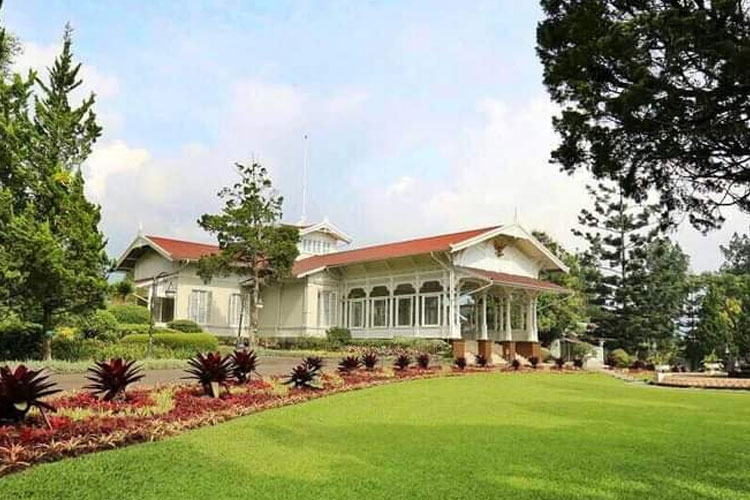Cipanas Presidential Palace: A Timeless Witness to Indonesian History

TIMESINDONESIA, CIANJUR – Nestled in the serene highlands of Cianjur, West Java, Cipanas Presidential Palace stands as a living testament to Indonesia’s rich history. This iconic palace is one of the six Presidential Palaces of Indonesia and holds a significant place in the nation’s narrative, both as a symbol of colonial legacy and as a center of modern governance.
The palace’s origins date back to the 18th century when it was constructed by Dutch colonialists as a retreat for the Governor-General of the Dutch East Indies. Its strategic location at the foot of Mount Gede provided an ideal escape from the tropical heat and the bustling life of Batavia, now Jakarta. The palace was originally designed as a simple rest house but was gradually expanded into a more substantial structure over the years.
Advertisement
Architecturally, Cipanas Palace is a captivating blend of European and local influences. The building’s design reflects the Dutch colonial style, characterized by large windows, high ceilings, and airy verandas that make the most of the cool mountain breeze.
The addition of local architectural elements, such as traditional Javanese motifs and materials, creates a unique synthesis that harmonizes with the surrounding natural landscape. The palace complex also includes a botanical garden, adding to its tranquil and picturesque setting.
Role in Indonesian History
After Indonesia gained independence in 1945, Cipanas Palace was transformed into one of the official residences of the President of Indonesia. This transition marked the beginning of a new chapter in the palace’s history, as it became a venue for both state functions and private retreats for the nation’s leaders.
Cipanas Palace has witnessed several key moments in Indonesia’s post-independence history. It served as a retreat for President Sukarno, the country’s first President, who used the palace as a place to contemplate and plan the future of the nation.
Subsequent Presidents have also utilized the palace for important meetings and events, making it a site of significant political and diplomatic activity.
Preservations
The palace’s location in Cipanas, which means “hot water” in Indonesian, is also historically significant due to the presence of natural hot springs in the area. These springs have been a popular attraction since the colonial era, adding to the allure of the palace as a retreat.
The surrounding landscape of lush gardens and cool mountain air has made Cipanas Palace a preferred location for relaxation and reflection, not just for the President but also for other state officials and foreign dignitaries.
Despite its age, Cipanas Palace has been meticulously maintained to preserve its historical integrity. Regular renovations are conducted to ensure the palace remains structurally sound while retaining its original architectural features. The palace is not only a functioning residence but also a cultural heritage site, symbolizing the continuity of Indonesian history from the colonial era to the present day.
Modern Uses
The palace continues to serve multiple purposes in contemporary times. While it remains a favored location for presidential retreats, it also hosts official state ceremonies, including receptions for visiting foreign leaders. The palace is a place where tradition and modernity coexist, reflecting Indonesia’s journey through time.
Cipanas Presidential Palace stands as more than just a building, it is a symbol of the Indonesian nation's resilience and adaptability. It represents a bridge between the past and the present, embodying the country’s colonial history and its subsequent emergence as an independent state.
For many Indonesians, the palace is a reminder of the nation’s cultural heritage and the enduring legacy of its leaders.
As Cipanas Predsidential Palace continues to play an active role in the life of the Indonesian state, it remains a site of great national pride, offering a glimpse into the country’s past while continuing to serve the needs of its present and future. (*)
**) Ikuti berita terbaru TIMES Indonesia di Google News klik link ini dan jangan lupa di follow.
| Editor | : Khodijah Siti |
| Publisher | : Ahmad Rizki Mubarok |

